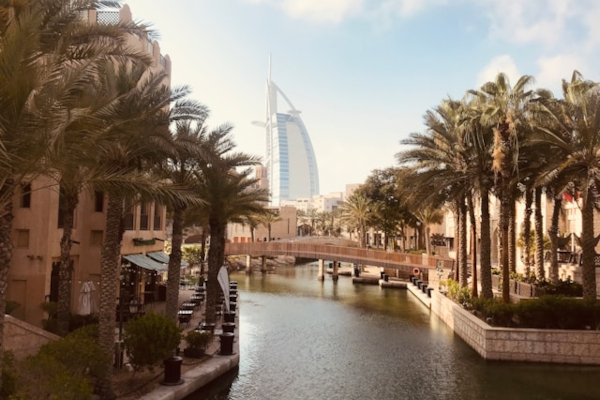No taxes in Dubai? Well... almost true!
.jpg)
Let's dot the i's right away: taxes and special levies do exist in Dubai. They just have a slightly different format from what residents of other countries are used to. Let's try to understand who pays for what in Dubai.
Taxes for individuals
There is no direct tax on personal income. However, all residents of Dubai pay (VAT) in the amount of 5%. This tax is not charged to the customer, but is integrated into the cost of goods and services directly by the owner. Therefore, it remains as invisible as possible for all customers.
Example
Mary lives in Dubai and is self-employed. Her salary is not taxed, but let's look at some of the girl's expenses for the month. She likes to go to restaurants (500 AED), buy clothes (800 AED) and delicious and fresh food (1000 AED).
Here are the calculations, taking into account that all these goods and services are subject to 5% VAT, which is included in the above cost:
- Restaurant lunches: 500 AED. Approximate VAT tax = 23.8 AED.
- Clothing: 800 AED. Approximate VAT tax = 38.1 AED.
- Groceries: 1000 AED. Approximate VAT tax = 47.6 AED
Total VAT for the month: approximately 109.5 AED.
In summary, Mary, as an individual working in Dubai, pays no income tax. However, each month she indirectly pays AED 109.5 in the form of VAT already included in the cost of goods and services she buys or receives.
.jpg)
Taxes for tourists
The tourism sector in Dubai is subject to a number of levies that are usually already included in the cost of accommodation and services. These include: hotel occupancy tax (10%) and general tourist tax (6%).
Property taxes
There are no taxes on the sale, gift or inheritance of real estate in Dubai. But when buying an apartment, apartment or other housing, the buyer is charged a registration fee of 4% to the Dubai Land Department (DLD). Renters of real estate in Dubai also pay tax: 5% of the rental value for residential properties and 10% 一 for commercial properties.
Example
Sam buys an apartment in Dubai for approximately AED 1,500,000.
The registration fee in this case is 4% of the property value = 1,500,000 AED x 0.04 = 60,000 AED.
Sometimes (but not always!) the amount of this tax is split between the buyer and seller by a 50/50 agreement.
.jpg)
Business taxes
Dubai has introduced a corporate tax from June 1, 2023. It is 9% of the company's profits if the entrepreneur's annual revenue exceeds $102,000. If the revenue is below this amount, the tax rate is 0%.
Important: Not all activities are subject to corporate tax. For example, businesses operating in free economic zones have different conditions.
Dubai also has a VAT for business 一 its standard rate is 5%.
Example
Let's imagine that your client has a small restaurant in Dubai that specializes in French cuisine.
The restaurant's annual revenue for the year 2024 is: 300 000$.
Annual expenses of the restaurant (rent of the premises, purchase of products, staff salaries, utilities, etc.): 220 000$
Restaurant net income: $300,000 - 220,000 = $80,000.
Although the restaurant's annual revenue exceeds $102,000, its profit is only $80,000. According to UAE tax laws, there is a certain benefit for small and medium-sized enterprises.
If a company meets the criteria of such enterprises, the first $102,000 of profit is not subject to corporate tax. In this case, the restaurant's profits are less than this amount, so it is not subject to corporate tax.
Excise Taxes
Companies engaged in the importation, manufacture, or storage of goods injurious to health are subject to an excise tax:
- 100% on tobacco and tobacco products, electronic smoking devices and their liquids;
- 50% on carbonated and sweet drinks;
- 100% on energy drinks.
Conclusion
The myth that there are no taxes in Dubai is more of a marketing ploy than the truth. The emirate's tax system has its own peculiarities and is focused on certain sectors of the economy and types of activities.
However, there are undoubted pros to Dubai's tax system:
一 Transparency, simplicity and predictability;
一 No tax on the sale, gift or inheritance of real estate;
一 No tax on wages, interest on deposits and other types of personal income;
一 No income tax for many companies and favorable tax rates in general;
一 Compliance with international standards.








